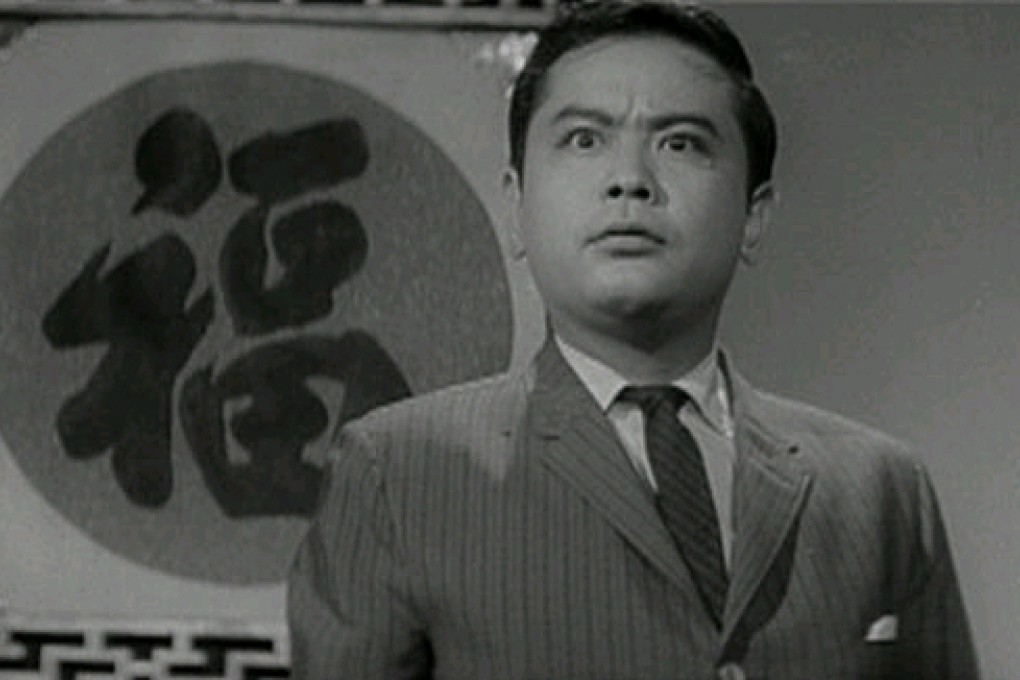Film review: 1963's My Lucky Star marked the end of an era for Shaw Brothers

The middle-class charm that Hong Kong cinema once possessed is on display in My Lucky Star (1963), one of the few black-and-white Shaw Brothers productions with a surviving print. The comedy represented the end of an era both thematically and technically, with the studio poised to shoot exclusively in colour and focus on more macho spectacles. Even more significantly, it was one of King Hu's final starring vehicles before he shifted into directing and became instrumental in establishing the primacy of the action genre over family films.
Hu excels as Zhou Sansi, an industrialist as inept at managing his factory as he is at dealing with his personal life with attractive spouse Fang Ling (Betty Loh Ti). Although top billing went to Loh, one of the loveliest presences in 1960s Putonghua movies, she's called upon to do little more than exude loveliness. But Hu gets an excellent showcase. Cinema enthusiasts would never suspect from watching stylised masterpieces such as Dragon Inn (1967) and A Touch of Zen (1971) that Hu had such natural comic timing.
My Lucky Star gets off to a sprightly start with a monologue delivered directly to the camera by Hu, followed by a creatively designed credit sequence featuring caricatured portraits of the principal players. But unexpectedly dark undertones gradually surface with the factory facing bankruptcy, Zhou's mistaken belief that Ling has run off to Japan with a former suitor (Gao Yuan), and the forlorn spouse's subsequent quest for suicide and his abduction by gangsters.
These blackly humorous elements go a long way to making the film distinctive from the usual 1960s domestic farce. Ho Meng-hua shows that he was a better director than writer with a film that's populated with hollow personages and ludicrous situations, yet eminently watchable due to the production's technical quality and wonderful cast.
The most curious character turns out to be the gangster's moll, Susan (future director-producer Kao Pao-shu), who breaks the "bad girl" stereotype and tenderly goes about assisting Zhou with his attempt at self-slaughter. Also exuding charm is Julie Shih Yen (better known today as the mother of Stephen Fung Tak-lun) as a suicidal former employee who somehow becomes instrumental in resolving everyone's plights.
Most provocative by today's standards of political correctness are scenes involving Zhou's gun-crazy young son (Fei Li), including the little boy's drunken dance aboard a cruise ship. Yet the shots of a security-free Kai Tak airport, and the leisurely bike rides en route to a rural picnic, show a much more innocent Hong Kong. For film fans, it's also a rare opportunity to experience a more innocent variety of humour emanating from the early years of the city's largest studio.